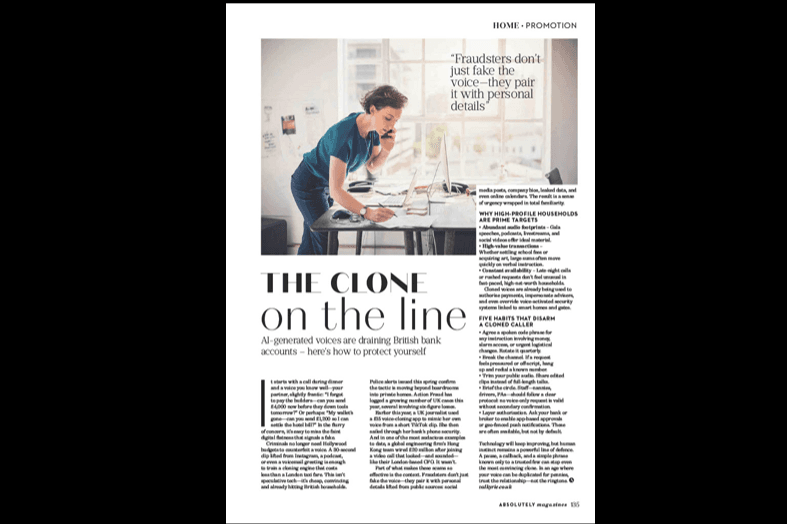Technology has transformed all aspects of our lives, including the way we meet, interact and ultimately fall in love with people. Romance is no longer confined to face-to-face meetings in restaurants or bars; online forums and dating apps have opened up a whole new realm of possibilities, connecting people across countries and even continents. Yet, amidst the allure of virtual courtship lies a lurking menace – the pervasive threat of romance scams – where unscrupulous individuals prey on unsuspecting hearts.
Between 2019 and 2022, five police forces—Avon & Somerset, Kent, London Metropolitan, Sussex, and Thames Valley—each witnessed losses exceeding £10 million due to romance fraud; while in 2022, the Metropolitan Police Force recorded over 1,000 incidents of romance fraud, resulting in nearly £15 million in losses.
These figures are even more alarming when considered in the context of a 2023 UK government report: which states that fraud now constitutes over 40% of all crime, yet it receives less than 1% of police resources. This alarming revelation underscores the urgency of the issue. Lloyds bank commissioned a study that reveals a 22% surge in romance scam victims in 2023 compared to the preceding year, indicating an escalating epidemic. Regrettably, this phenomenon is not confined to the UK alone. The Federal Trade Commission’s data reports that nearly 70,000 Americans fell victim to romance scams in 2022, resulting in staggering losses exceeding US$1.3 billion.
“We have witnessed a pronounced uptick in romance frauds from 2017 to 2023,” noted James C. Barnacle Jr., the financial crimes section chief for the FBI. His counterpart, Samuel Levine, Director of the FTC’s Bureau of Consumer Protection, attributes this surge to the proliferation of digital tools, including online dating platforms. While these mediums foster connections, they also provide fertile ground for scammers to identify, research, and exploit their victims with unprecedented efficiency.
Victims of romance fraud hail from diverse demographics, transcending gender, sexuality, and age. In 2023, men accounted for 52% of reported cases, yet women tended to incur higher financial losses, averaging £9,083 compared to £5,145. The modus operandi of these scams typically involves perpetrators assuming false identities, sometimes even masquerading as celebrities, to cultivate trust and affection. It is common to leverage stolen photos and information from social media, to weave intricate personas to ensnare their targets.
A troubling evolution of this deception involves the use of AI technology to produce deepfake videos or audio messages, lending a veneer of authenticity to the ruse. The grooming process is insidious, with scammers investing hours daily in messaging to cultivate rapport before broaching the subject of ‘money’. Their appeals may range from concocted emergencies necessitating immediate financial assistance to spurious investment opportunities or charitable ventures. When pressed for in-person meetings, scammers concoct elaborate excuses, citing anything from military deployments to humanitarian missions abroad.
Protecting oneself from the threat of romance scams requires a multifaceted approach rooted in vigilance and critical thinking. Any request for financial assistance from someone not met face-to-face should evoke a strong sense of caution. Avoid divulging personal documents or sensitive financial information to individuals encountered online, regardless of the perceived intimacy of the relationship. Empower yourself with technological aids such as reverse image searches to uncover fraudulent profiles hidden in the digital realm. Additionally, exercise prudence in your social media presence; oversharing personal details can unwittingly provide scammers with ammunition for manipulation. Lastly, cultivate a healthy skepticism towards overly elaborate or rushed expressions of affection, as genuine connections often evolve gradually and authentically. If doubts persist, seek counsel from trusted confidants.
The digital landscape, with its vast connectivity, presents both opportunities and risks. Navigating this realm demands careful discernment and a keen eye for warning signs. Given the prevalence of fake profiles on social media and dating platforms, it’s crucial to proceed with caution and ask probing questions. If you suspect you’ve become entangled in a romance scam, remember that seeking help is not a sign of weakness; countless others have faced similar challenges. You are not alone in this journey towards safeguarding your heart and financial well-being.
South East Times article: issue 523, 20th May 2024 – Page 70-71














